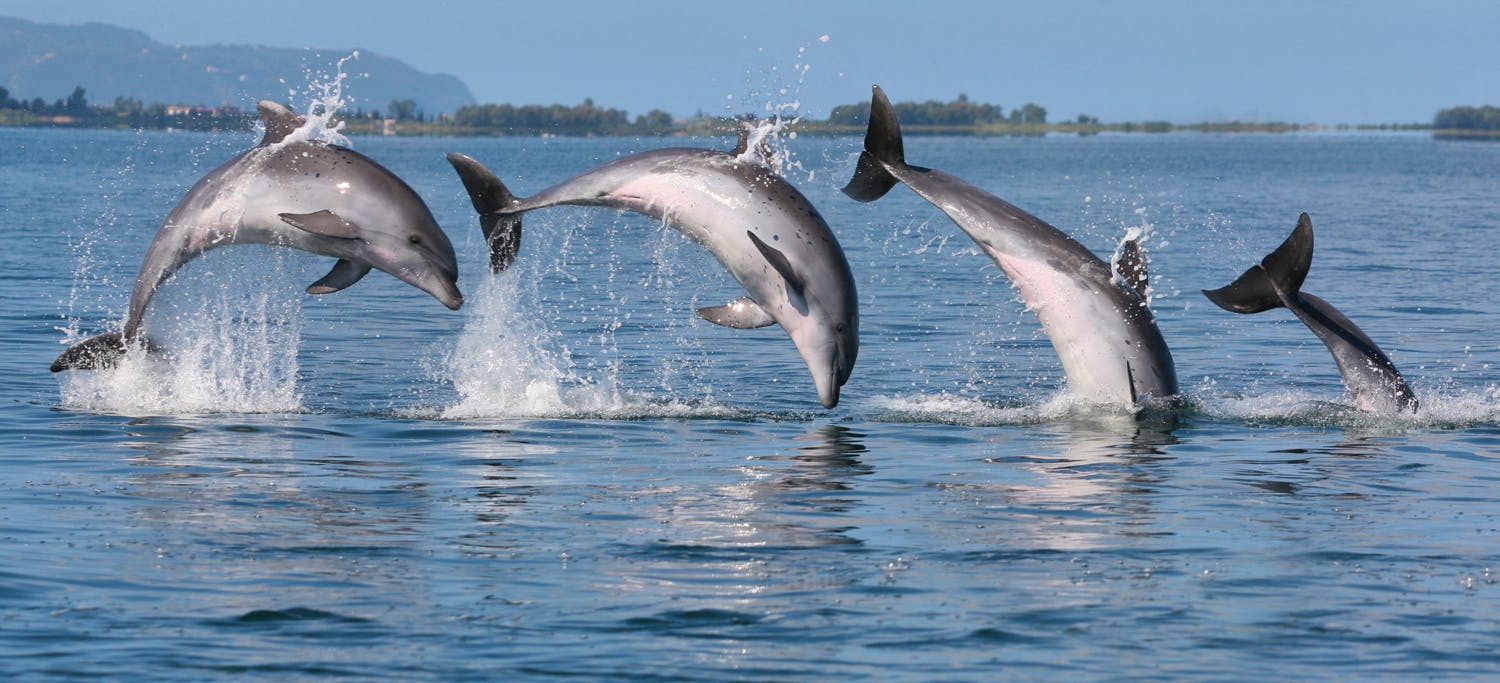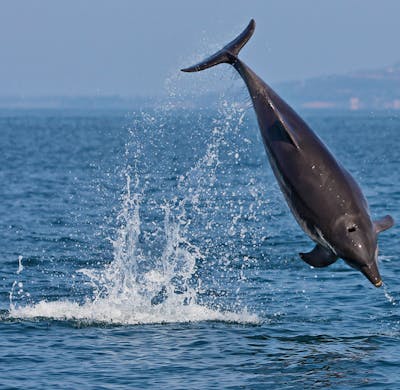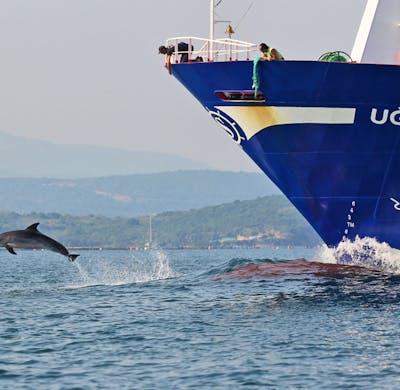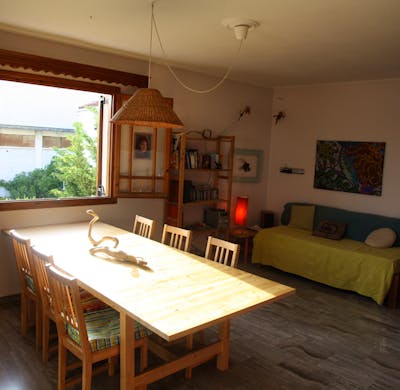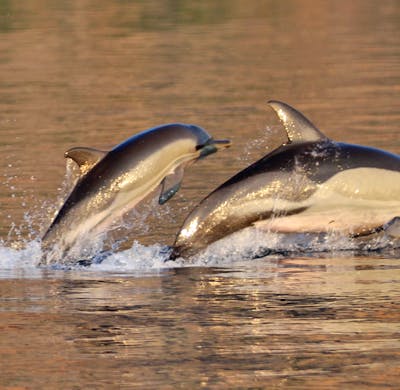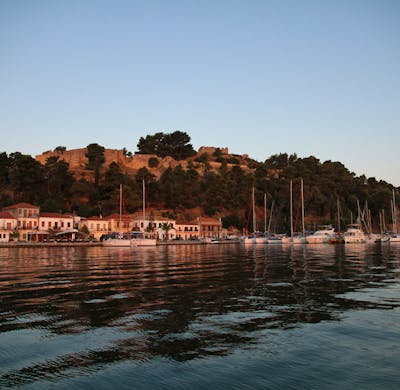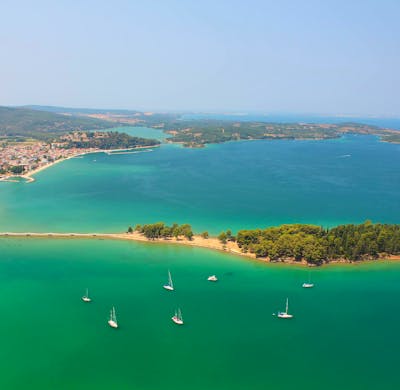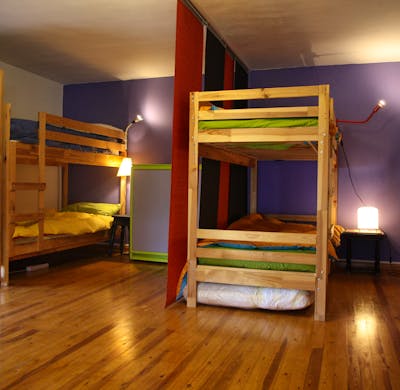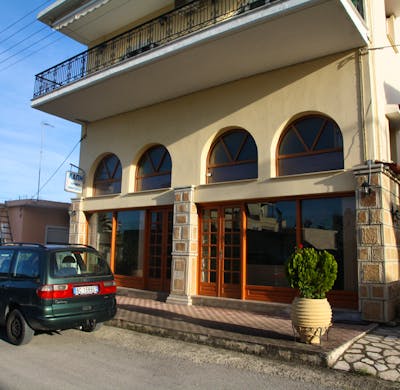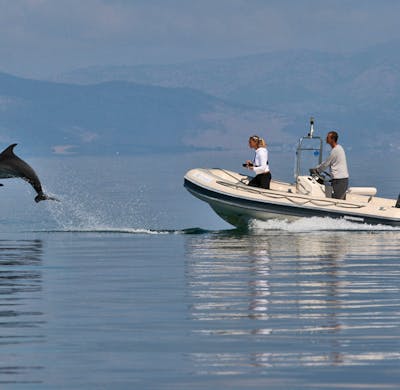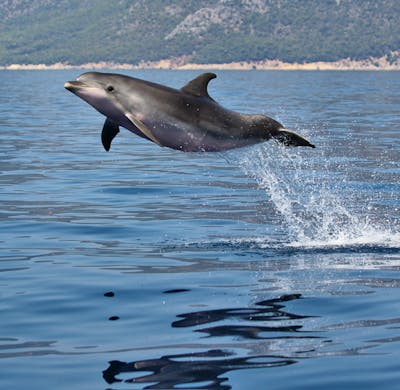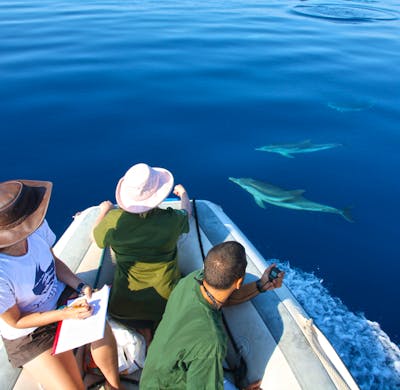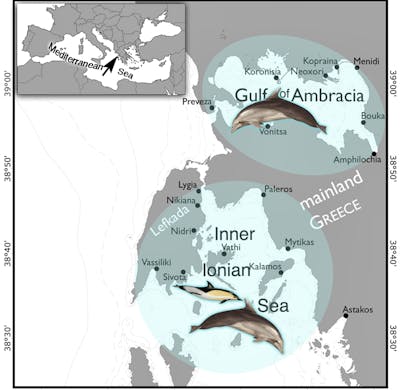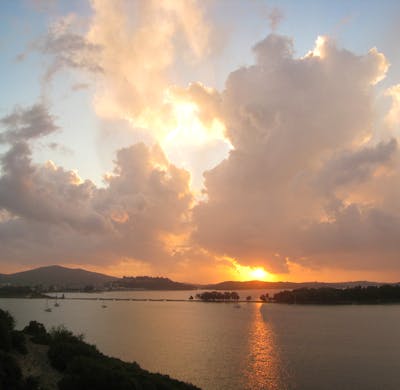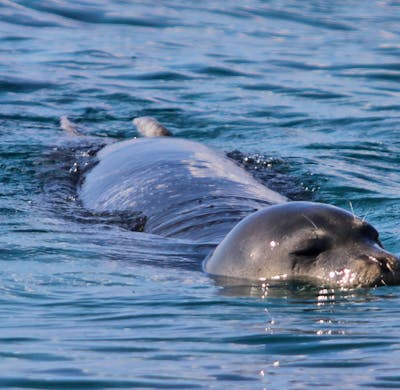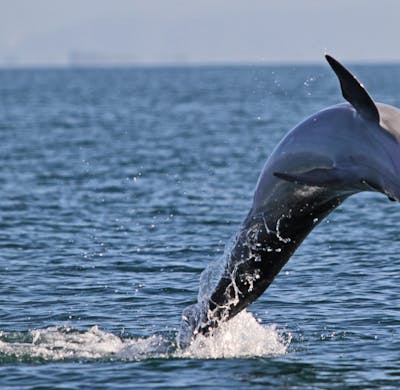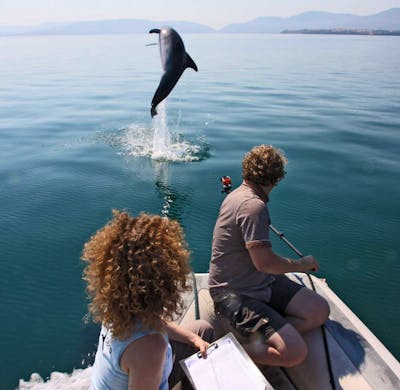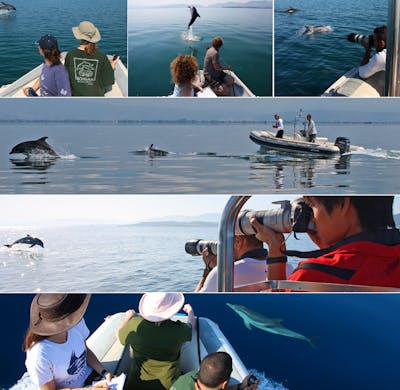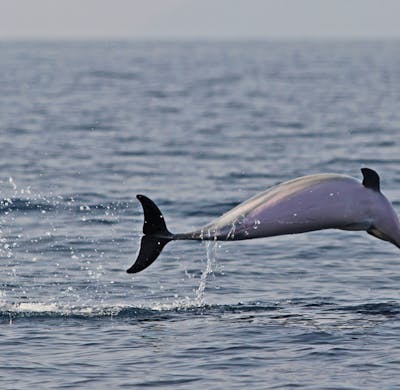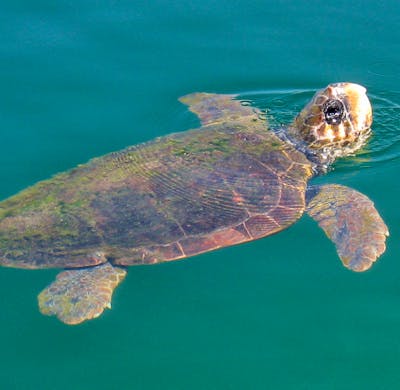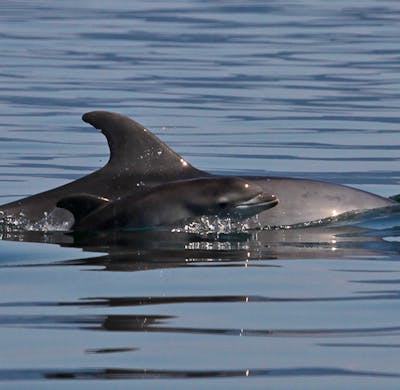2017 at Coastal Dolphin Conservation
Coastal Dolphin Conservation
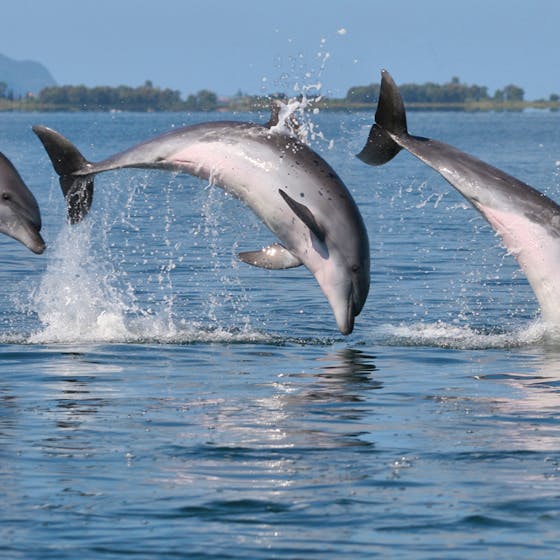
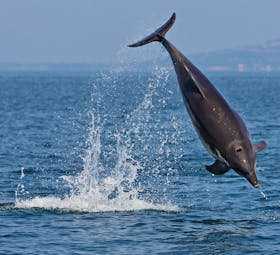
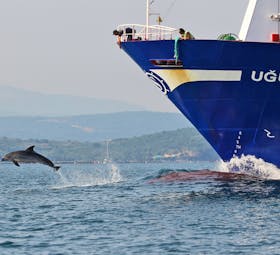
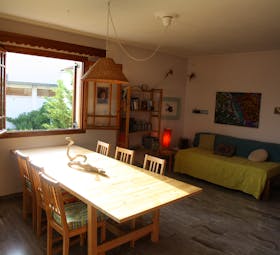
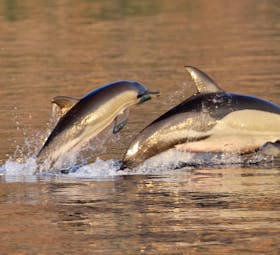
Destaques
- Explore and volunteer in beautiful Greece!
- Volunteer with us and gain a first-hand understanding of the motivations that inspire our work!
- Be involved in the monitoring of the secondary study area located in the Inner Ionian Sea archipelago°
- Work side-by-side with researchers and contribute to field data collection
- Meet like-minded volunteers from all over the world!
Especialmente adequado para
Sobre o programa
From June to September, be part of a scientific team focused on the study and conservation of coastal dolphins in the beautiful waters of western Greece.
By sharing every experience with us, and ultimately living a researcher’s life, you will gain a first-hand understanding of the motivations that inspire our work, appreciate its significance for dolphin conservation and learn about the importance of protecting the marine ecosystem and its ...
Dia típico
Volunteers will conduct daily surveys onboard the research boat, working side-by-side with the researchers and contributing to field data collection. You will actively engage in visual surveys, looking for dolphins, sea turtles, birds and other fauna during navigation. As soon as dolphins are ...
Actividades em tempo livre
Volunteers will have plenty of free time. The work at sea is concentrated mostly during the morning hours. Once back from the sea, we will all have lunch at the field base. Then, all team members will have about 2 hours of free time before starting to work with the data collected at sea during our ...
Requisitos
Serviços incluídos
O que NÃO está incluído?
Detalhes à chegada
Preços do programa
Conheça seu anfitrião
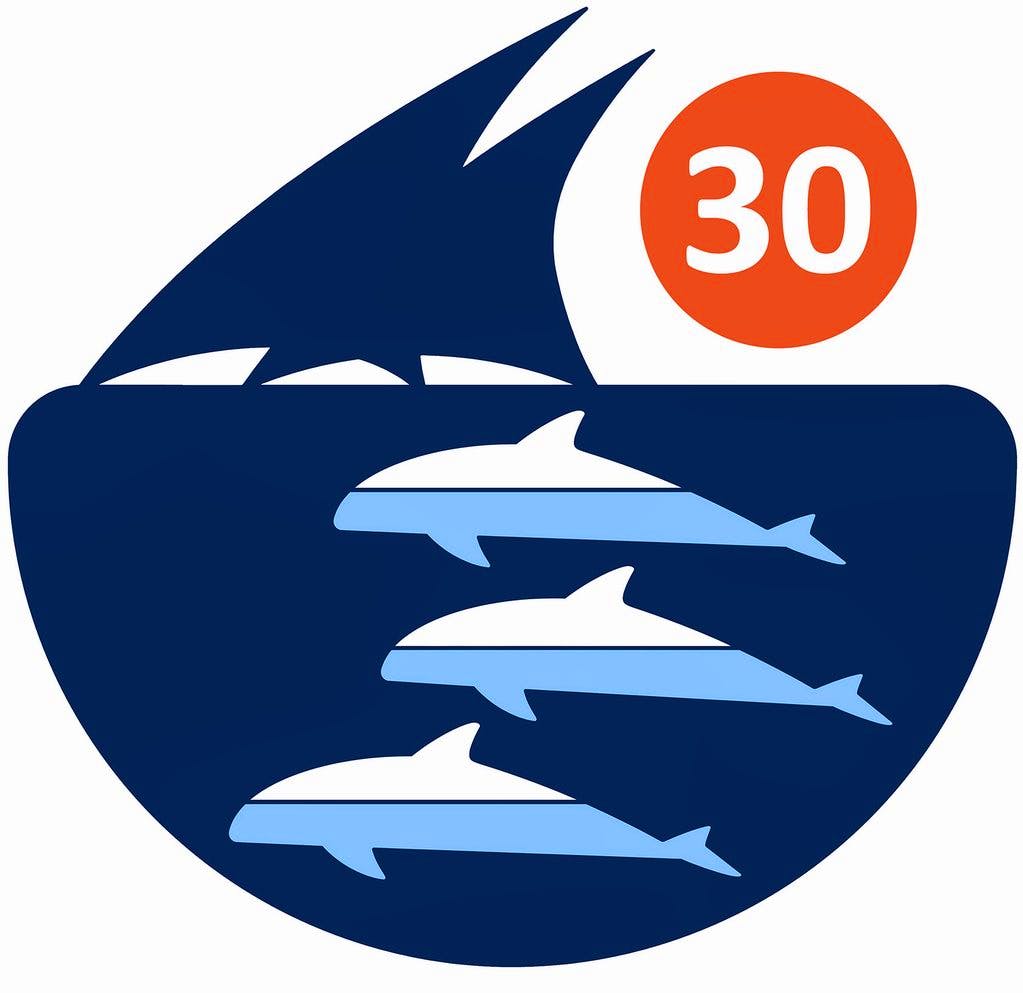
Tethys Research Institute
Non-profit - fundada em 1991
Verificado por Volunteer World
Hospedado por
Adriana
Sobre o projecto
8 revisões ·  4.7
4.7
Localização

Pode também estar interessado em
-
Conservação dos Golfinhos
Viagens Solidárias
Casais
Projectos no estrangeiro
Grupo
Família
